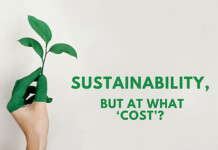Clean energy will overtake gas in the global electricity mix by 2016, making it the world’s second largest power source behind coal, the International Energy Agency (IEA) has predicted. Renewables growth continues to “beat expectations” and by 2018 it will make up a quarter of the global power mix, the Paris-based organization predicts in its second annual Medium-Term Renewable Energy Market Report (MTRMR).
The agency said that global renewable generation in 2012 stood at 4,860TWh, greater than the total estimated electricity consumption of China, and grew at around eight per cent over the year.
The IEA now expects the growth in renewable power However policy uncertainty is public enemy number one for investors in clean energy and short term thinking could undermine the deployment of green energy capacity to continue, increasing by 40 per cent over the next five years.
Hydroelectricity will account for the bulk of the growth in renewables capacity, although the IEA said the global share of wind, solar, bio-energy and geothermal power will also double from four per cent in 2011 to eight per cent in 2018. Just five years ago, the share of renewable energy excluding hydropower stood at just two per cent. The rapid growth experienced in recent years is attributed to rising investment and deployment of renewable energy in emerging markets, where the technology is increasingly used to address dramatic rises in electricity demand and bring power to off-grid communities. With China leading the way, non-OECD countries are expected to account for two-thirds of the global increase in renewable power generation between now and 2018, compensating for slower growth in the US and Europe, the report predicted.
The IEA also notes that renewable technologies outside the well-established hydropower, geothermal, and bioenergy sectors are becoming cost-competitive in certain markets, with solar power in southern Europe and wind in Brazil, Turkey, and New Zealand increasingly competing on cost with fossil fuels.
However policy uncertainty is public enemy number one for investors in clean energy and short term thinking could undermine the deployment of green energy, especially in stagnating, old world economies where subsidy schemes are being cut, often with little warning.
Globally, while renewables may not need subsidies in many cases, they do still need long-term policies that provide a predictable and reliable market and regulatory framework compatible with societal goals.









